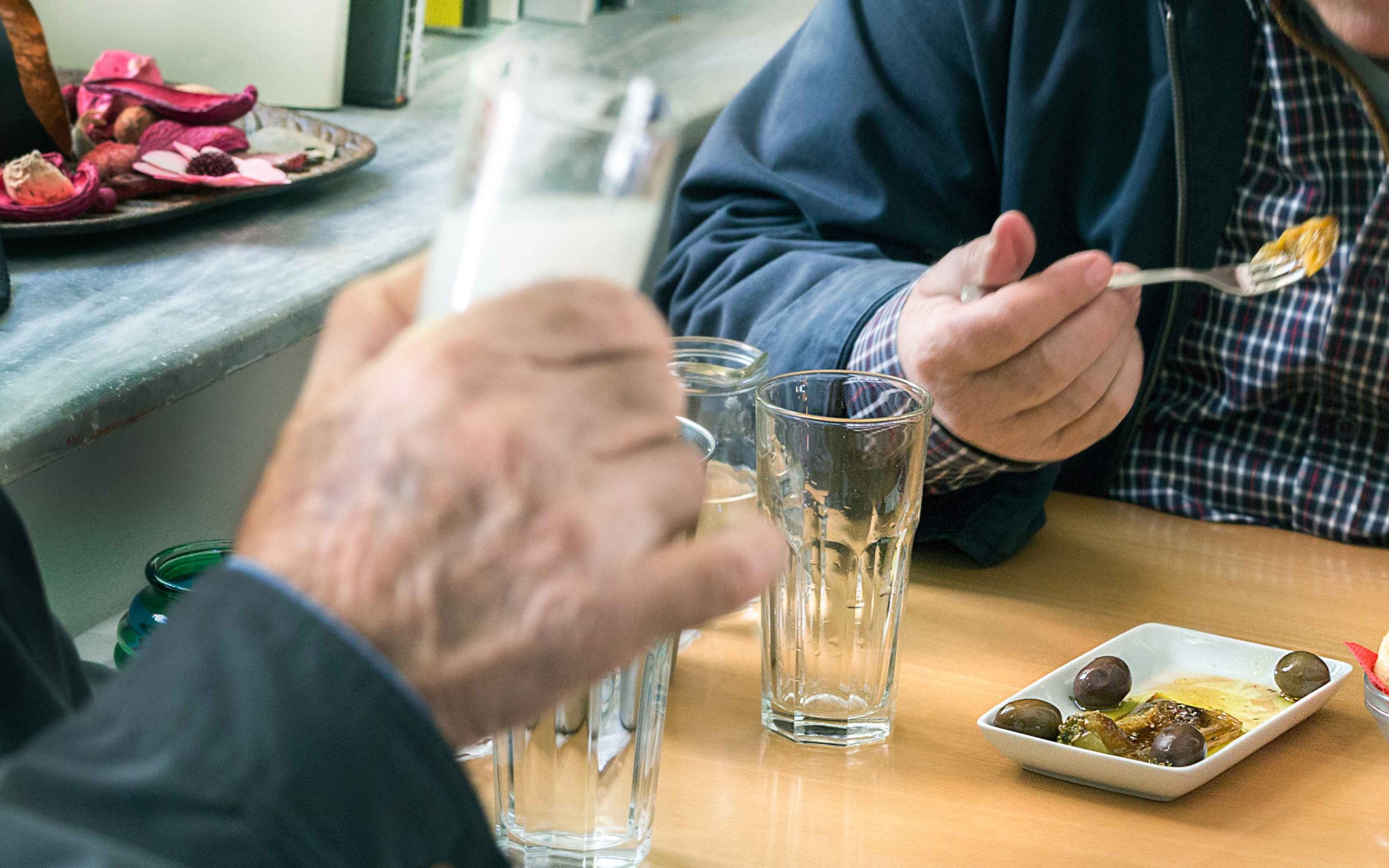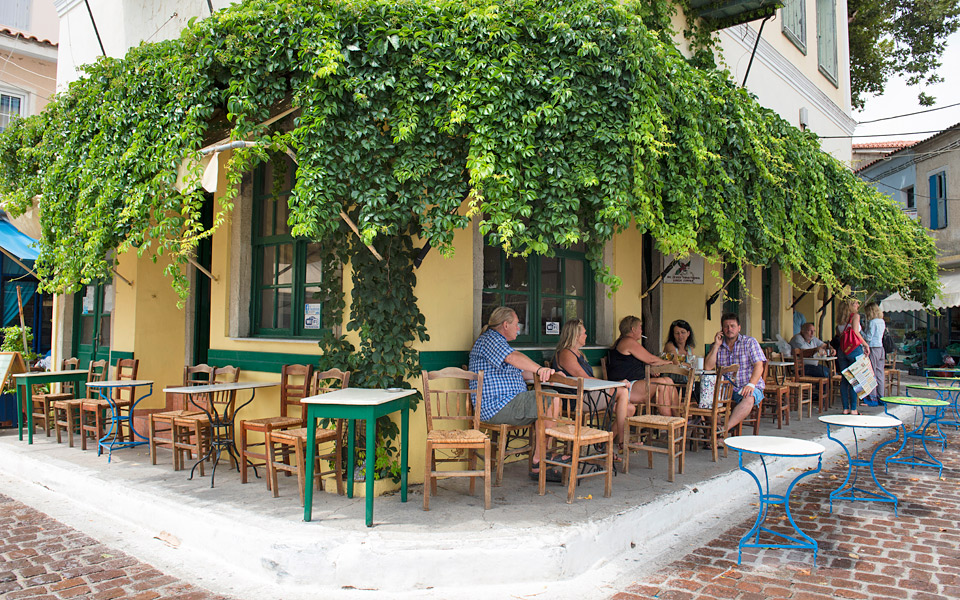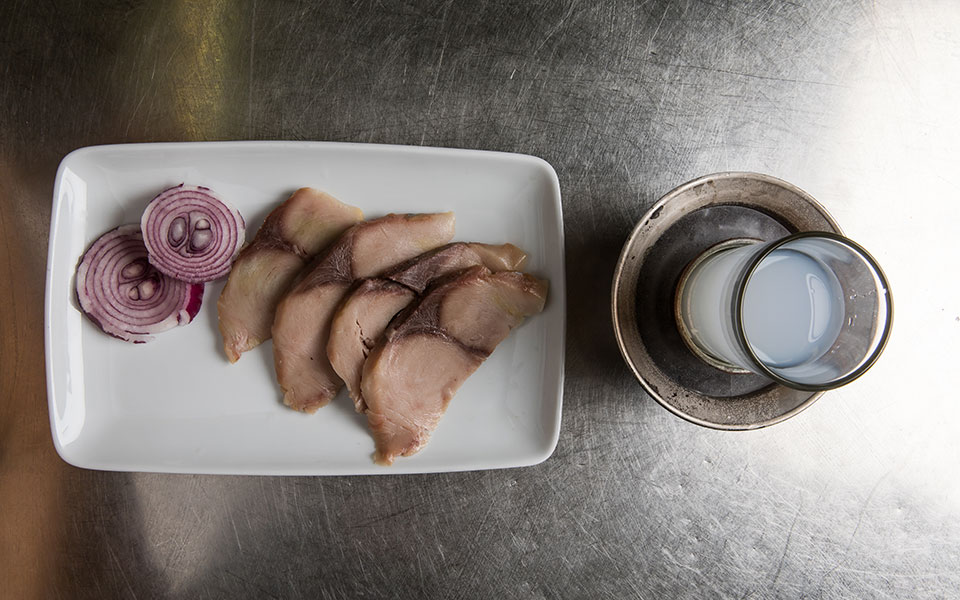Sometimes I feel that our national aperitif, with its nose full of memories, has been pushed aside in recent years, leaving the field open for other spirits. This is down to the fact that ouzo seems to have lost its dominant, starring role as an aperitif.
“Ouzo is the flirtation”, as the late lamented master-craftsman Anestis Papatzimopoulos used to say, the flirtation before you sit down to the table and surrender yourself to the love of wine. Ouzo is an aperitif. It is not a substitute for wine or beer, it does not accompany a meal, and it is never drunk at the table. Here I can only quote with respect the relevant passage from Christos Zouraris’s “Deipnosophist” (the first of three volumes from Ikaros Press), which is a true elegy to ouzo:
“We sit sideways or at an angle, never facing the table, precisely to declare triumphantly that we are not eating. It goes without saying that any thought of placing individual settings before each participant is to be rejected outright: the ouzo table is a place of sharing and joining in, a place of extreme comradeship”.

© Shutterstock
Ouzo’s singular, almost aggressive taste, demands equivalent accompaniments, which are also simple, everyday foods: salted sardines, anchovies, preserved tuna (known as lakerda) and any salted or smoked fish or seafood; also fried zucchini and eggplant strips, and classic garlicky tzatziki. All pickles and authentic taramosalata and melitzanosalata (eggplant dip) – untouched by mayonnaise! Peppery and piquant cheeses. And olives! A tomato cut in quarters and sprinkled with salt.
Glasses must be tall and a little wide, with a short stem, so as not to allow the frozen ouzo to be warmed by the hand. Always drink in small sips, never fast. One glass can last hours, to allow time for discussion, before sitting at the dining table.

© Vangelis Zavos
Our favourite labels
From Cava Anthidi (link in Greek): Avantes 100% distilled, the perfect taste that will captivate you, in an elegant bottle (16.50 €), and Idoniko from Kostas Lazaridis Estate, 100% distilled, full of craftsmanship and aromas (11 €).
From House of Wine: Mini Mytilinis, the first ouzo we fell in love with, with the label that reminds us of Mary Quant and the “crazy mini-skirted girl” of the Greek 1960s pop hit (10.50 €), Ouzo Plomariou by Isidoros Arvanitis, because that cork made waves (12.10 €), Adolo, the first premium ouzo (18.90 €), and, from the Katsarou family, one of the leading ouzo makers, Syllektiko with its distinctive bottle (3.5 € / 200 ml) and the flavorful, aromatic Jivaeri (16 €).
This article was previously published in Greek by “K” Magazine.












